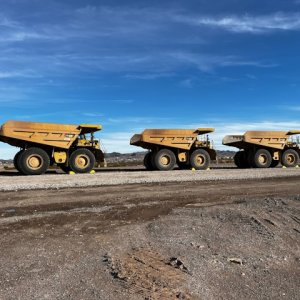Dealmakers Seeking Propane Port

STORY INLINE POST
Q: What is Kratus Energy’s strategic focus?
A: We are an integrator with an emphasis on representing companies that provide services to the drilling industry. It has been a difficult environment the last couple of years and the drilling industry here in Mexico has been almost on standby, at least on land. We have been working on deals in areas such as infrastructure for natural gas pipelines. We are collaborating with a company called the Conti Group, a US EPC business that wants to enter Mexico. This group designs and constructs ports, airports and bunkers, as well as doing remediations. It is one of the 500 largest companies in the US. We are exploring several opportunities for this client within the energy market, from buying natural gas pipelines to developing ports and infrastructure for fuel storage terminals.
Q: How did you create the portfolio of companies in your service package?
A: We found some of the clients in our portfolio, while others found us. We have tried to create a general solution for companies wanting to do E&P in Mexico. We can address practically all the requirements of such companies aside from the geological aspect. For example, Acción Logística offers a customs agency and logistics services. It has a private port and bases in Laredo and in all the other coastal oil hubs in Mexico. Among our other clients, Morton Controls makes electronic systems for platforms. Del Pacífico is a group of engineers who used to work for large service companies and came together to help companies that are entering Mexico. Each of the engineers is a specialist in a particular area of drilling and production. These are just a few of the companies we represent.
Q: What would be a project that would keep your portfolio of clients happy?
A: We have a project in the works for a port, tank farm and storage terminal in Seybaplaya, Campeche, which has the scope to involve many of our clients. There are two efficient electricity cogeneration plants in the vicinity but there is not enough natural gas supply. These CFE plants are using fuel oil, which is the worst possible option. Constructing a regasification plant in Seybaplaya for receiving LNG would cost around US$200 million and would take six years to build. However, there is an alternative. Propane is very easy to transport and unlike LNG, does not require cryogenics. We are working with an international company that distributes propane worldwide. It has committed to building the necessary infrastructure within Seybaplaya’s port as well as carrying out the modifications to the electricity plants needed for the use of propane. We are also in talks with the large gasoline retailers in the area. We already have two companies interested in diesel supply. The influence area would be the states of Campeche, Oaxaca, Chiapas, Yucatan and Quintana Roo. This area of Mexico is almost like an island. It would take about 10 years for infrastructure development in this part of the country to provide ample natural gas pipelines. That is why CFE is very interested in our project. It is also an easy project to construct and can be completed in about a year.
Q: What do you think are the key bottlenecks hampering the collaboration between the private and public sectors?
A: I think a key cultural factor is respecting people’s time. Often, meetings involve participants flying in from other countries. If PEMEX representatives schedule the meeting for 8am but delay it until 2pm, or change it for the next day, this is not conducive to good business practices or relationships. We have met with companies that have said that they were not interested in going back after being treated this way.
This is part of the culture in Mexico and particularly in PEMEX, but it does a great deal of damage to mediumsized companies. PEMEX is becoming a company that will have to compete with the whole world, so it will not have the importance it used to have. Another problem is with PEMEX being forthright when a proposal has no chance of being accepted. Often it can take a year of going back and forth before a company is told its proposal will not be considered.
























